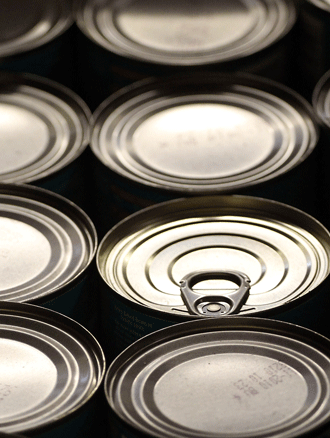December
Food banks just the tip of the iceberg

Charities being left to feed families on the breadline highlights wider problems, warns a Newcastle academic.
A huge rise in the number of people reliant on food banks is due to a squeeze on incomes, benefit delays and excessive utility bills, according to food-poverty-feeding-britain-finalby a cross-party group of MPs and church leaders published today (8 December 2014).But Dr Jane Midgley, of Newcastle University, says this report doesn’t go far enough and ignores the fact that there is no clear direction about who is responsible for tackling food poverty in the UK.
?“We are increasingly finding that charities, rather than the state, are supporting people in need who cannot afford to feed themselves,” she says. “While we need to recognise the effort this takes and the difference it makes to peoples lives, the boundaries of this responsibility are far from clear.?
“Food poverty is not seen as a welfare issue and because of the way charities and voluntary sector organisations have stepped in, people no longer see local government and the public sector as a source of support,” she says.
Dr Midgley’s research has shown that public bodies are increasingly seen as ‘not caring’ and ‘part of the problem’ as a result. “We are now not just at a critical juncture for how we respond to the issue of food poverty, but also what this means for local policymakers,” she says. “They need to be able to show, in a difficult financial climate, that they still care and want people who live within their towns and cities to live well and flourish.”
The inquiry was set up to understand the extent and spread of hunger and food poverty and to investigate its underlying causes. It analysed food bank usage as a way of determining the problem.
The number of food banks run by the charity Trussell Trust alone has grown from a handful to 420 in the past 10 years.
Dr Midgley, who submitted evidence to this inquiry, says not only is it difficult to calculate the exact number of food banks in the UK because so many are independent and run by individual groups but this report also fails to include the homeless or rough sleepers.
“Food poverty is a very real problem experienced by many and all too often commentators just refer to the food system and the welfare system as the problem,” says Dr Midgley.
However, she says that society needs to look at the wider issues and re-think our current approach.
“For example, homeless and rough sleepers are invisible in these debates about food poverty,” she adds. “They undergo significant risks in obtaining food, are placed on public display, made to feel embarrassed and experience intimidation and violence. It is a real struggle for them to meet their basic food survival needs.
“What this report and others show is that we are focusing on particular groups in society as more deserving than others.”
The parliamentary inquiry into hunger and food poverty in the UK report says many families are one unexpected bill away from financial crisis.
Among the recommendations of the all-party report are speedier benefit payments, an extension of free school meals and a living wage to reduce hunger.
The MPs also recommend a national organisation be set up to put a stop to edible food being destroyed and to ensure more of it goes to those who need it.
Dr Jane Midgley is a lecturer in planning at Newcastle University and researches the practices of food provisioning in the food system, most recently exploring this through consideration of care for rough sleepers in Tyne and Wear. Previously Jane led the Institute for Public Policy Research's food policy work.
published on: 8 December 2014
